The unofficial capital of Transylvania, the 2000-year-old Cluj-Napoca is one of the most vibrant cities in Romania. With a population of around half a million inhabitants, out of which around 100,000 are college students, the city is bursting with energy the year round. Along with fine dining, cultural activities, a wonderful historical legacy and a great atmosphere, the city will certainly not disappoint those who add it to their travel itinerary. Living here is certainly a great experience for those who want to see urban Transylvanian life at its best.
The architecture in the city centre is reminiscent of the old Austro-Hungarian Empire, while elements of modernism have now been added to give the city a modern, exciting feel. The multi-ethnic and multi-cultural aspects can be traced almost anywhere; it is truly a place to express yourself. Also, there are lots of museums, parks, sport facilities and an internationally acclaimed Botanical Garden, which are sure to appeal even to the most demanding visitor. Not to mention the countless cafés, restaurants, clubs and discos where one can have a great time at any time of day or night.
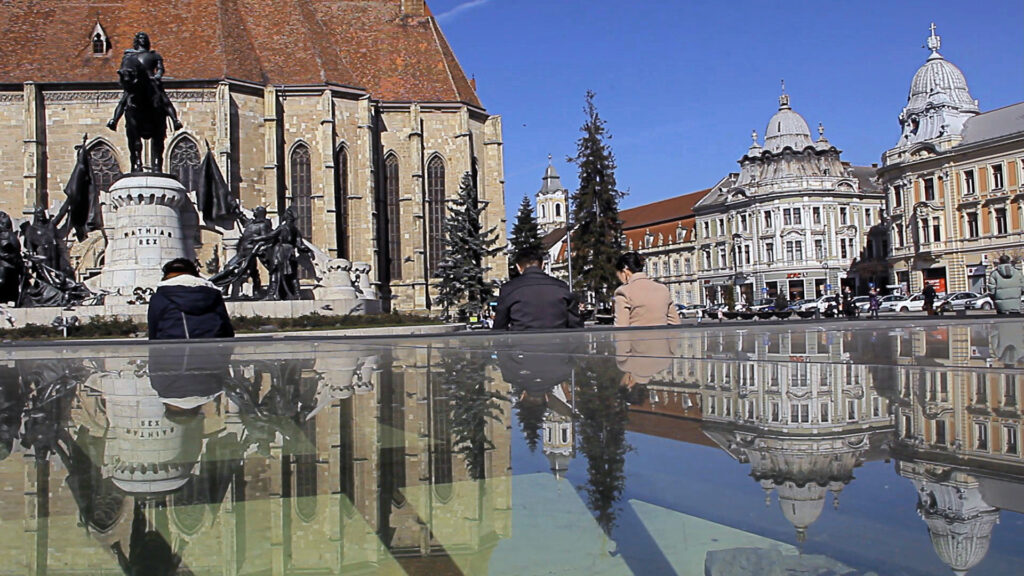
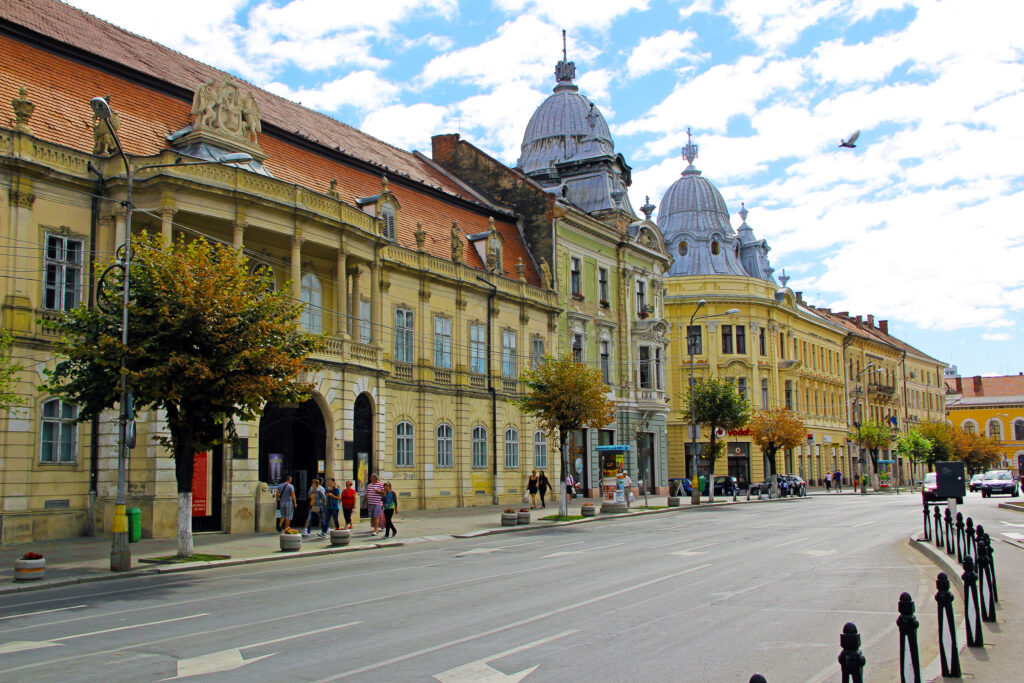
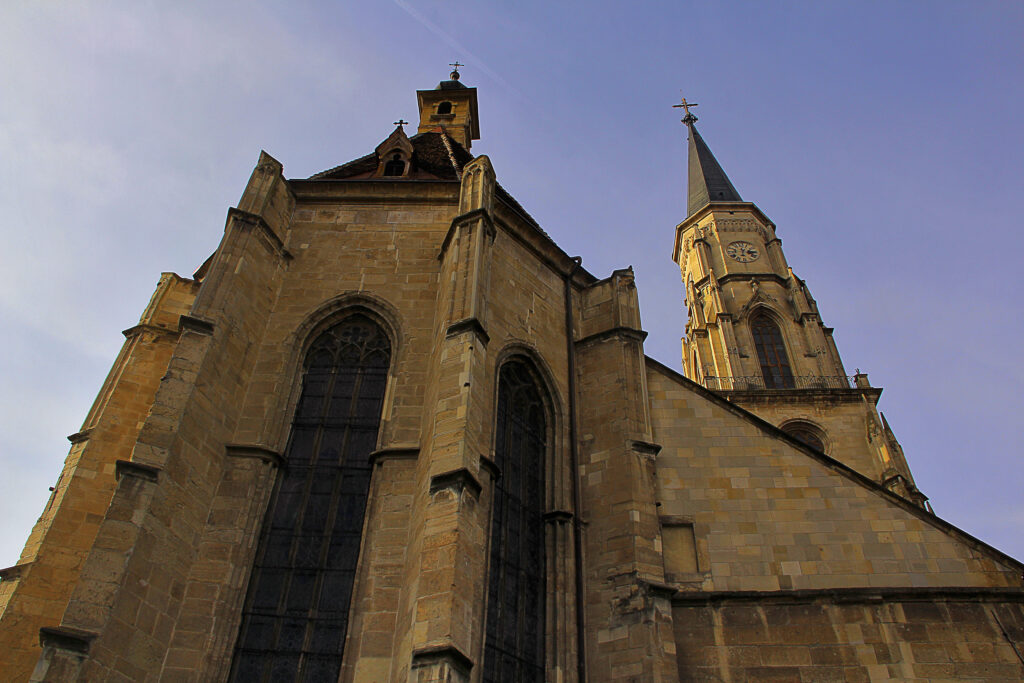
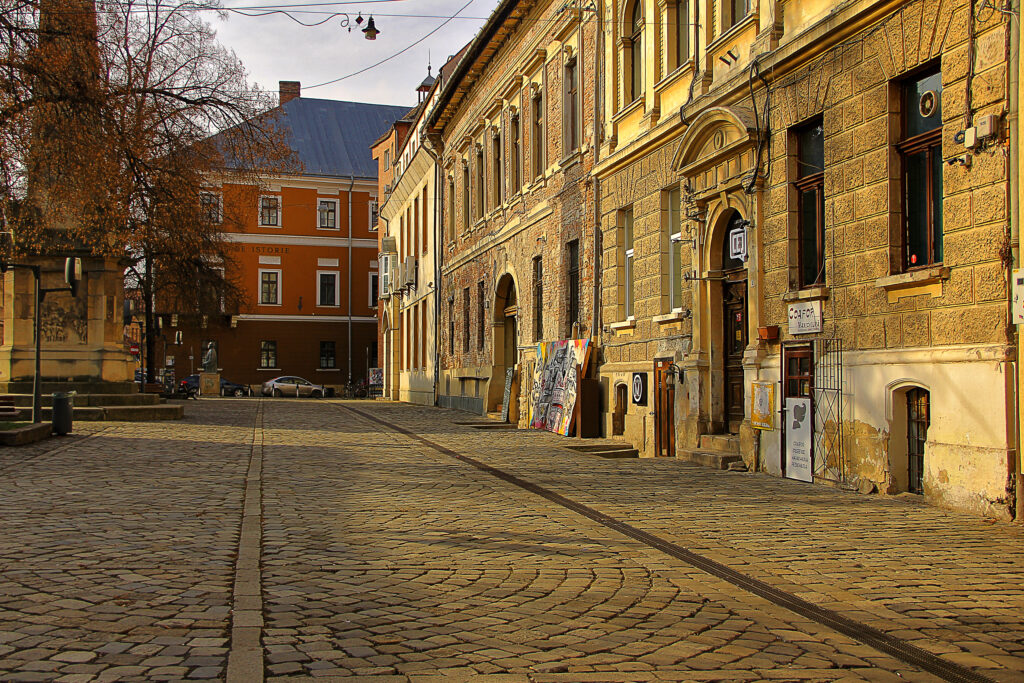
Dynamism and friendliness characterize every-day life. Opportunities to build a career, to start your own business, to enrich your knowledge or just to have a good time are within everyone’s reach. Numerous public figures, renowned professors and scientists, artists and athletes as well as businesspeople have started their careers here. Their prized achievements stand proof of the city’s cultural values and intrepid spirit. Cluj- Napoca is truly a place where things are happening. Dynamism and diversity are the key words when describing the cultural life of Cluj-Napoca. Besides Romanian and Hungarian, which you can currently hear on the street, there are many other ethnic groups. The German and Jewish communities have deep roots here; newly formed communities –Italian, Turkish, Chinese, Arabic – are already making their presence felt. Never a moment in this city is it bland, boring or quiet. More than 100,000 students, Romanian as well as from abroad, give the city a modern vibration and keep it connected to the newest cultural trends.
People living in Cluj-Napoca make it a point to have the best selection of films, concerts, plays, and exhibits, lectures, and sports events. That is why the cultural calendar is filled with the most prestigious and interesting events. Within the same week, you can feel like in Vienna, on the sound of Strauss’ waltzes played by the Philharmonic Orchestra, be amazed by a post- modern photography exhibition at the Art Museum and hear trendy bands playing while enjoying a cold beer during the Septemberfest festival. Some annual events have a long-established tradition and represent important cultural landmarks for the city.
The Transylvanian International Film Festival turns Cluj for nine days into the Romanian capital of film flashes, cameras, national and international stars, one of the most ambitious cultural events in Romania. Free screenings, low-priced tickets, movies that take your breath away.
Without a doubt, the most vibrant event is Untold Festival: local and international DJ’s, bands and groupies recreate for three days the atmosphere and thrill of the Love Parade.
Besides these cultural landmarks, daily life in Cluj- Napoca is full of smaller but no less important events, which are very accessible and make the bulk of the cultural life of the city. You can always find exhibitions, fairs, book presentations, lectures, debates and workshops, language classes, arts &crafts courses and so much more. Drop into local “around the corner” art galleries to get in-depth opinions about your latest acquisitions, or find your favourite singer’s latest album in the well- supplied music stores. (Photo: Arts Museum Cluj- Napoca)
Numerous clubs and bars feature local celebrities as well as prestigious bands and DJs in live concerts, from rock to techno and from jazz to alternative.
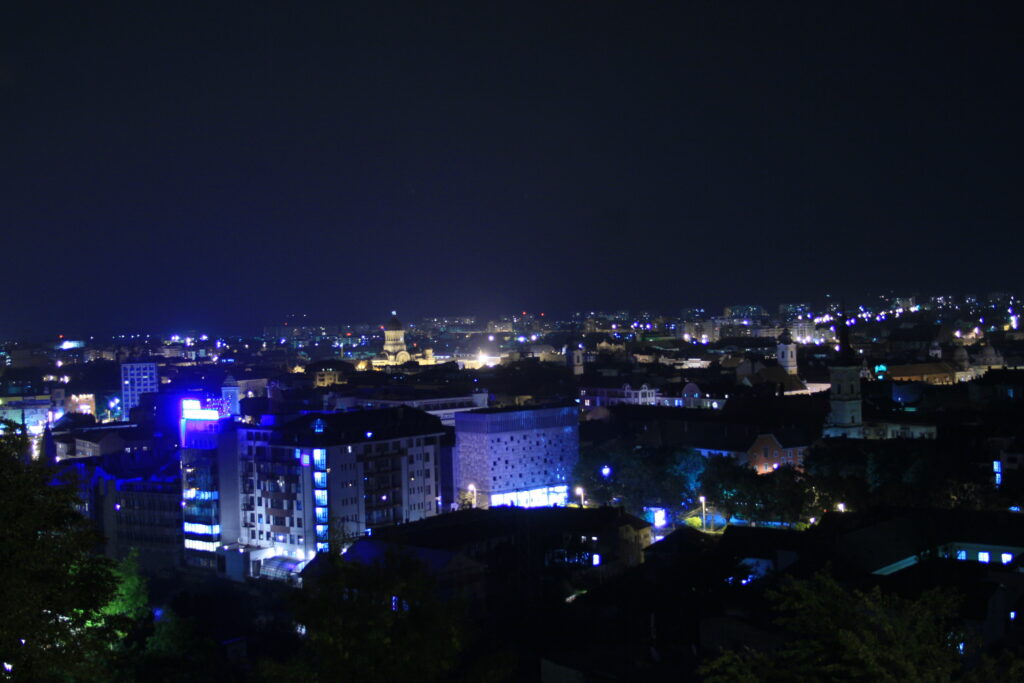
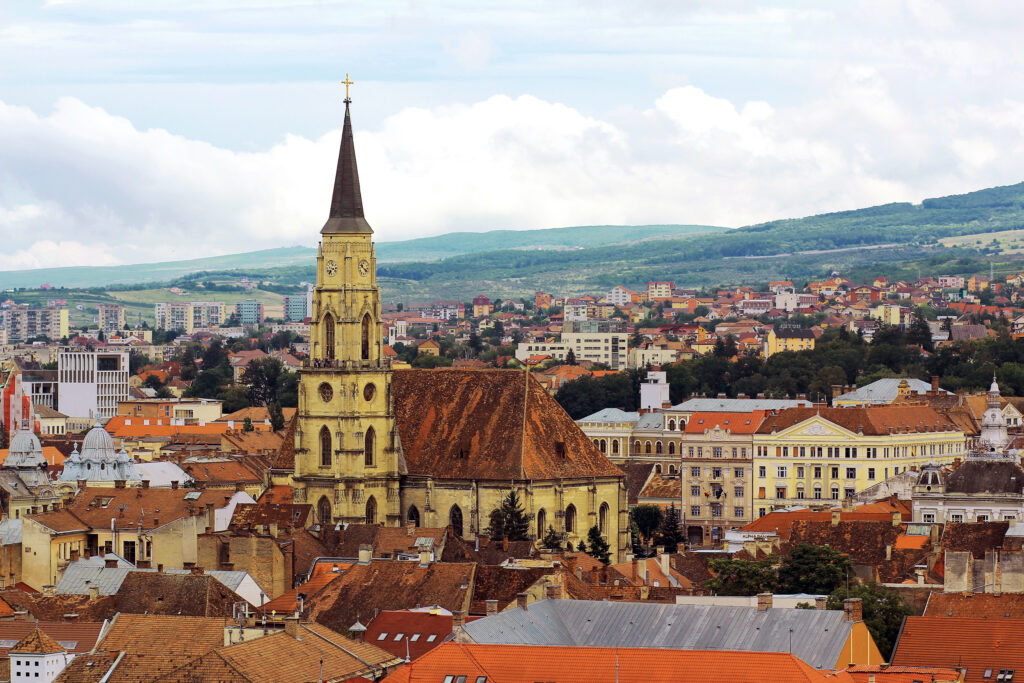
Cluj-Napoca’s intense cultural life rests on the bedrock of the city’s numerous and prestigious institutions, with a well-established audience, patrons, visitors and enthusiasts. Cluj-Napoca is one of the few cities in Europe that has two State Theatres and Operas, one in Romanian and one in Hungarian, a testimony to the diversity and friendliness that characterize the city’s cultural atmosphere. Every season, they feature international classics as well as local directors, playwrights and actors. The “Puck” Puppet Theatre is a very interesting cultural presence; its shows are enjoyed by hundreds of young children and also by adults who feel young…
For many, the “Transylvania” Philharmonic Orchestra has no need of further presentation. Besides the above-mentioned festivals, the prestigious orchestra and choir hold concerts every Friday during the season, quite often with famous international guests.
The museums are a cultural universe unto themselves. The Art Museum, located in the former governors’ residence, combines the old and the new in its numerous collections and exhibitions. The National Museum of Transylvanian History, with its collection of Roman sculptures and inscriptions (lapidarium) as well as some of the finest 18th century Baroque furniture and weaponry, is must see. Open-air museums are not very common, but the Transylvanian Ethnographic Museum has reconstructed a genuine traditional Transylvanian village on the Hoia hill, near Cluj-Napoca.
Spiritual and religious life is also very active in Cluj-Napoca. All religious denominations have at least one worship place. The city also has three cathedrals: Orthodox, Greek-Catholic, Calvinist and Unitarian. Religious studies are encouraged through Church-run seminaries or University faculties. (Photo: Synagogue in Cluj- Napoca) Besides their religious activities, all denominations are actively involved in civic life through numerous associations and NGOs. Organ concerts are much appreciated due to the wonderful acoustics of the old churches.
One of the favourite leisure activities in Cluj-Napoca is going to the movie theatre. Famous Hollywood releases as well as independent productions can become the highlight of your evening. “Republica” a n d “Victoria” are the most important movie theatres, alongside the cinema complexes in Iulius Mall and Vivo Center. Each sells discount tickets on a specific day of the week. Numerous radio stations, both national and local, as well as local television stations complete the cultural landscape. You can keep yourself updated with the latest local news, find out about “what is happening in the city” and feel involved in the energetic life of this fast-paced community.
Although an academic and business community, the inhabitants of Cluj-Napoca have not neglected outdoor activities. Cluj-Napoca has professional sports teams in virtually every league: football („CFR” in the first league and „U” Cluj in the second league), basketball (U Banca Transilvania), handball, and martial arts. The “Transylvania” Rally gathers crowds of enthusiasts, just like the dirttrack motorcycle racings. Sports facilities include two stadiums, the “Horia Demian” Sports Hall, the “Iuliu Hatieganu” Sports Park, the Olympic swimming pool and numerous smaller facilities, both public and private: tennis courts, artificial turf football grounds, basketball courts and special facilities for roller-skates and skateboard enthusiasts.
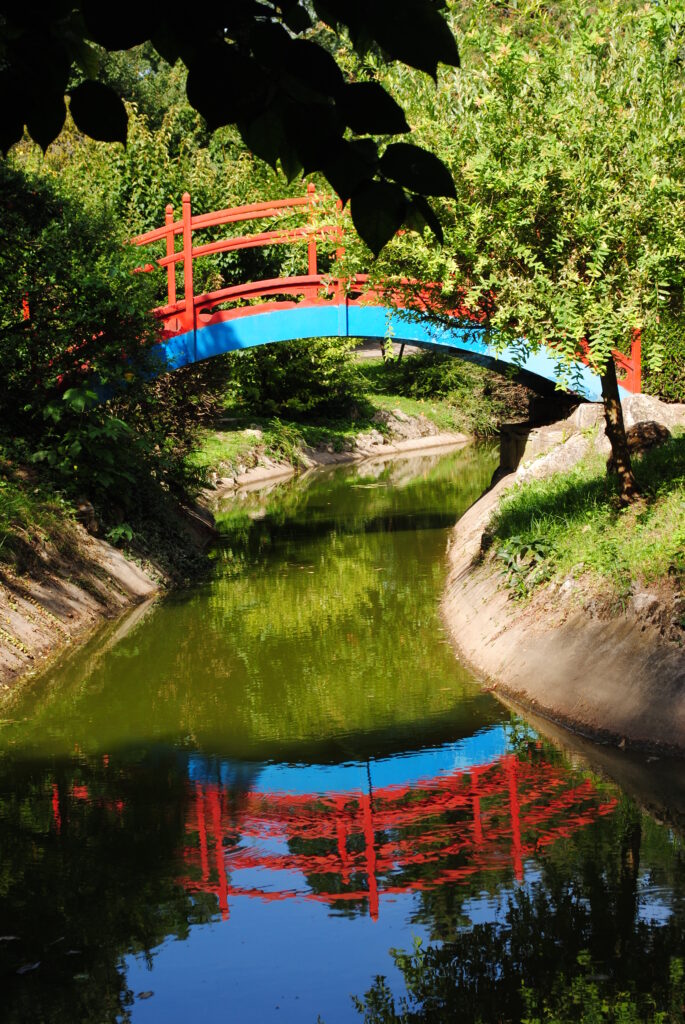
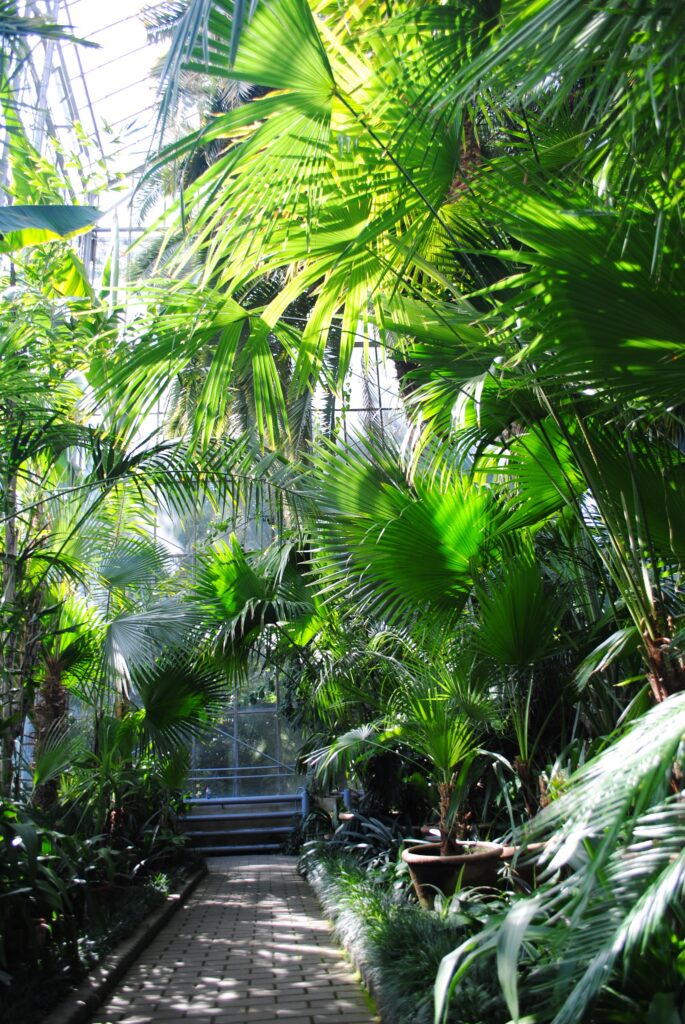
Cluj-Napoca is gradually becoming one of the top shopping destinations in Romania. There are, of course, large shopping centres, keeping you well supplied with the essentials and the latest releases. But the true charm of Cluj-Napoca is found in the smaller stores and boutiques. There you can shop for antique books, perfumes and luxury furniture, souvenirs and art pieces, while enjoying a pleasant conversation with the owner. Shopping for clothing and footwear is quite a challenge, given the wide variety, from international brands to locally manufactured products, which you can find on the premises of the numerous stores. Also, sports equipment can be found at bargain prices offseason.
In December and April, the traditional Holidays Fair attracts thousands of dedicated shoppers. All stores stay open longer and have an abundant offer. You can spend hours browsing through the richly decorated isles. Usually, January is the month when all shops have appealing discounts.


